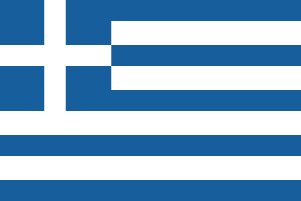
Greece
Greece was one of the twelve founding Member States of CERN in 1954. Ever since, Greek experimentalists have been involved in the entire spectrum of research activities at CERN, from detector development and computing to numerous experiments at CERN’s PS, SPS, ISR, SppS & LEP facilities. Greek researchers, both from Greece and abroad, have made notable contributions to the field of experimental and theoretical particle physics.
Today, particle physics research is carried out in several universities and research institutions in Greece. The exploitation of the LHC is currently the main objective of Greek researchers who have made a strong commitment to the LHC and in particular to its two main experiments, ATLAS and CMS. These two experiments have absorbed the majority of the research effort in Greece since the beginning of 1990s. Greek institutes have participated in the design, construction and commissioning of the barrel muon systems of ATLAS, and of the preshower detector and data acquisition system of CMS. In addition, Greek scientists participate in the ALICE and CASTexperiments, in the GRID project, CLIC developments, and in the development of Micromega detectors for the sLHC. A novel activity for the Greek scientific community was the successful participation of a team of 12 engineers in the LHC cryogenics integration during the years 2006-2008 and was followed up by a team of 11 engineers and technicians in the LHC Consolidation Project SMACC during Long Shutdown I (2013-2014).
This page was last updated on 30 January, 2023
Industrial Liaison | Knowledge Transfer | Scientific Computing